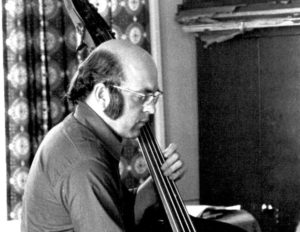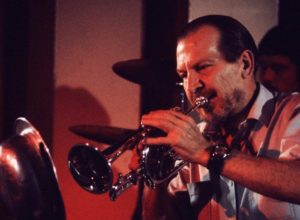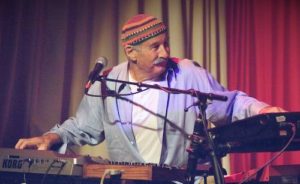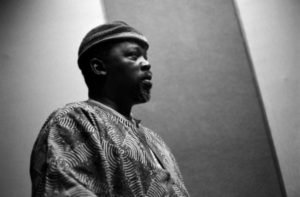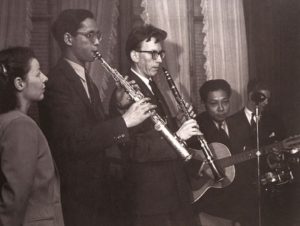Albert Mangelsdorff
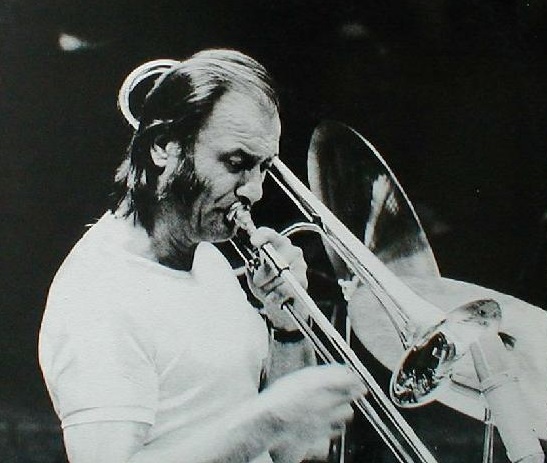
Albert Mangelsdorff (1928-2005) was a regular German Jazz Echo poll winner on trombone in the 1950s, playing in some of Germany’s finest post bop and cool jazz outfits with players like Jutta Hipp, Hans Koller and his alto saxophonist brother Emil. From the beginning of the 1970s, Mangelsdorff had become increasingly interested in free jazz, and together with frequent collaborators, Peter Brotzmann and Wolfgang Dauner, he would become one of the leading lights of the German jazz avant garde.
He was born in Frankfurt and started off on violin and guitar. Jazz was banned under the Nazi regime, but he and Emil would find their way to secret record listening sessions in Frankfurt. A fascination with the music of Lee Konitz and Lennie Tristano, led him to favour a cool jazz style initially and to play with like-minded Austrian saxophonist, Hans Koller. By the late 1950s, he was leading his own bands, as well as being invited to represent Germany in a Newport international Band at the 1958 festival. He co-led a quartet with John Lewis on the 1964 album Animal Dance, and the same year took his own group on a tour of Asia, that exposed him to Indian music for the first time. The freedom of music that didn’t rely on themes and chord structures appealed to him, and he joined the abstract ensemble, Globe Unity Orchestra in the late 1960s, an ensemble which featured an extraordinary array of musicians, who would become key figures in the development of free jazz, including Alexander von Schlippenbach, Evan Parker, Willem Breuker, Gunter Hampel, Paul Rutherford, Kenny Wheeler, Anthony Braxton and many more.
Mangelsdorff developed an approach to trombone playing – multiphonics – where he could more than one note at a time, and even chords. This led him to appear in solo trombone concerts. From 1976, he worked in a groups with French saxophonist Michel Portal, and began to work in a duo with Wolfgang Dauner. Mangelsdorff recorded and composed prolifically and is one of the most important jazz trombonists in all of jazz, and in all its forms.
Key Recordings:
‘Animal Dance’ (Atlantic 1964)
‘Purity’ (Mood 1990)
